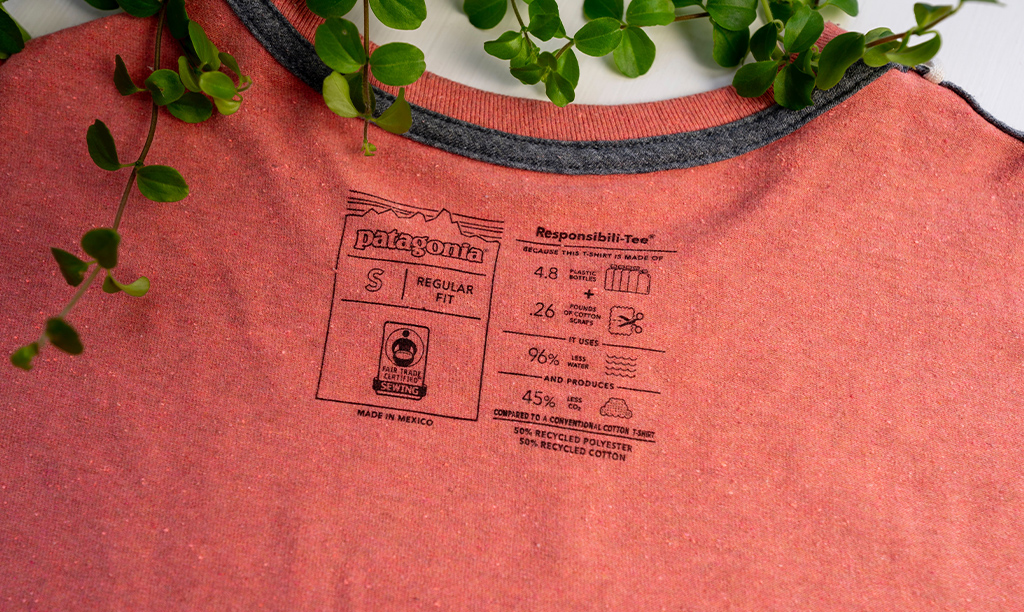Whiplash Team, 7th April 2023
The positive impact of brands
When a brand cares about the well-being of its users and creates a positive impact, it builds loyalty and trust, which, in the long term, translates into growth and value for the brand.
Brands, the great influencers of all time, have the power to impact the lives of their users in a positive way. Their ability to influence people and society makes them potential sources of the common good while generating benefits for the company.
But how is that positive impact enforced? How can a brand improve and positively influence the lives of its consumers and contribute to the common good?
To begin with, by aligning their offer of products and services with the needs and expectations of users: designing sustainable and healthy products, services that save time and money, or innovative solutions to everyday problems.
Consumers of today and tomorrow
Sustainability, not only environmental but also social and economic, is a concern for consumers of generations Z (born between 1996 and 2021) and Millennials (born between 1981 and 1995), much more so than those of previous generations, the so-called Boomers and Generation X.
According to studies by the consulting firms Deloitte and McKinsey, the fight against climate change, the circular economy, the reduction of CO2 emissions, inclusion, the high life span, diversity, and mental health are some of the topics that preoccupy these consumers.
For brands, Generation Z and Millennials are a good part of their market share. According to a study carried out by Bank of America, the members of Generation Z generated income of 7 trillion dollars (approximately 5.8 trillion euros) in 2020 alone, and by 2030 it is expected that income from this group will represent 27% of global income.
In other words, these are the generations that will boost consumption in the coming decades. For this reason, brands have to take special care to understand what these generations expect of them as agents of change and what kind of positive impact they expect brands to have in their lives.
Positive impact, yes, but how?
In recent years we have seen various brands make all kinds of commitments, hoisting the flags of sustainability or social inclusion, for example.
However, nothing better than tangible actions to demonstrate the impact that a company or a brand can have on the world and society. Especially when according to the latest Havas Group Meaningful Brands report reveals that 71% of consumers look cynically at brands and think that they do not keep their promises and commitments.
Here are some examples of brands that are driving real change, with the intention of having a positive impact on their users, the planet, and society:
Allbirds, sustainable products for a cleaner world
For example, the Allbirds sneaker brand is committed to making sustainable and environmentally friendly footwear, using materials such as wool and sugar cane with the goal of halving its carbon footprint by 2025 and zero by 2030.
In 2020, the company presented its Allbirds Flight Plan, which outlines the guidelines to achieve its goal. In 2021, they managed to reduce the average carbon footprint of their products by 12% compared to 2020.
This commitment to sustainability not only benefits the planet but also attracts conscious consumers looking for more environmentally friendly options.
Glossier, social media, and the consumer as a starting point
The Internet and social networks are valuable tools for brands that want to leave a positive mark on the lives of their users. By creating and sharing valuable and relevant content, these brands can help educate and inspire their consumers, while connecting with them more meaningfully.
For example, the cosmetics brand Glossier has become a cult brand on social media and has built a community of loyal fans thanks to its focus on natural beauty and its commitment to inclusion and diversity.
This year, for the third consecutive year, they have launched their grant program in the United States to support African-American-owned businesses that create and sell beauty, skin care, and hair products.
The Glossier, Inc. company was founded in 2014. They stated that beauty is not created in a meeting room, but when consumers are part of the process. They started their journey with Into The Gloss, a beauty website where people share opinions about the products they love, serving the company as a source of inspiration and information. Its purpose is to create the products that users say they wish existed.
Today, their Instagram account has nearly three million followers, they have a strong presence on TikTok, Twitter, Facebook, and Pinterest. By creating authentic and relevant content online, the brand has established an emotional connection with its consumers, which has led to greater brand engagement and loyalty.
Patagonia, social commitment pays dividends
Social commitment and corporate responsibility are other ways to improve people’s lives. Those brands tangibly committed to causes that are important to society or that set themselves the task of achieving positive changes in the environments where they operate, will obtain the respect and loyalty of their consumers.
For example, the Patagonia clothing brand, founded in 1979, is known worldwide for its commitment to sustainability and environmental conservation. Over the years, the company has donated millions of dollars to charities and has launched awareness campaigns to encourage a more sustainable lifestyle.
It also allocates 1% of its sales to environmental organizations. Despite this, the company is an extraordinary business with sales of more than $1 billion annually.
In 2022, its founder, the American of French-Canadian origin Yvon Chouinard, transferred the company to a trust that will allow the company’s profits, valued at 3,000 million dollars, to be used to fight climate change.
This social commitment has not only attracted conscious consumers but has also helped enhance the brand’s reputation and financial success.




